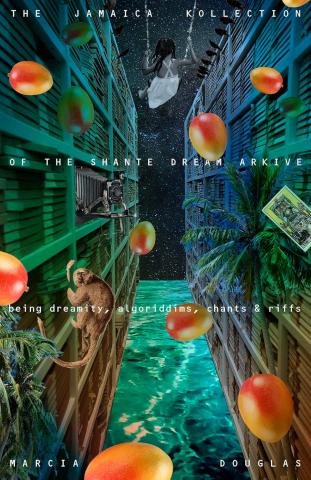A poetic novel melds the past and the present of the author's native Jamaica through the voices of a series of women, both real and mythological, whose lives embody the country's mythology, colonial history, and matrilineal traditions.
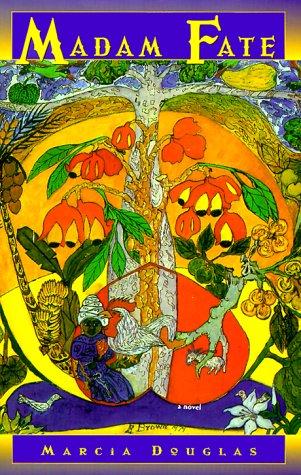
A poetic novel melds the past and the present of the author's native Jamaica through the voices of a series of women, both real and mythological, whose lives embody the country's mythology, colonial history, and matrilineal traditions.

Marcia Douglas, who was born in England and grew up in Jamaica, presents poems beginning with the image of the voicelessness of the country people who witness the coming of lights to Cocoa Bottom but have no one amongst them to record the event. Each poem has its own poignant individually, but there is also a powerful sense of architecture which runs through the collection.
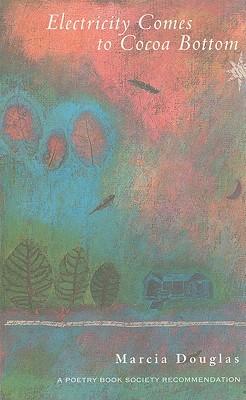
Flamingo, a young writer in Jamaica, finds herself enmeshed in the world of her fictional characters in this inspiring and poetic novel about hope and the ravages of recent Jamaican economic and social upheavals. When poverty, emigration, and political turmoil in the fictional world oblige Flamingo's characters to disperse, the one-eyed protagonist Alva solicits Flamingo's help to bring them back together. The innovative novel is organized as a writers' notebook and sprinkled with recipes, herbal remedies, dream interpretations, and various other interjections evoking the culture and traditions of Jamaica.
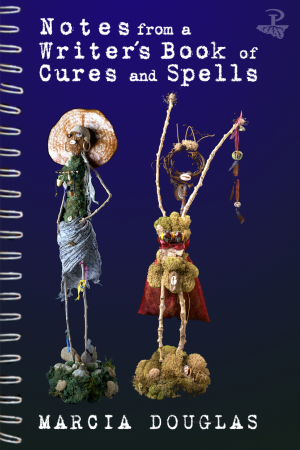
“Is me—Bob. Bob Marley.” Reincarnated as homeless Fall-down man, Bob Marley sleeps in a clock tower built on the site of a lynching in Half Way Tree, Kingston. The ghosts of Marcus Garvey and King Edward VII are there too, drinking whiskey and playing solitaire. No one sees that Fall-down is Bob Marley, no one but his long-ago love, the deaf woman, Leenah, and, in the way of this otherworldly book, when Bob steps into the street each day, five years have passed. Jah ways are mysterious ways, from Kingston’s ghettoes to London, from Haile Selaisse’s Ethiopian palace and back to Jamaica, Marcia Douglas’s mythical reworking of three hundred years of violence is a ticket to the deep world of Rasta history. This amazing novel—in bass riddim—carries the reader on a voyage all the way to the gates of Zion.
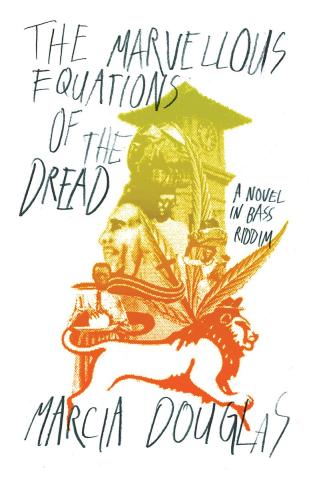
Zooming into tight focus on present-day life and dashing deep into the past in turns, the pace is fast and fierce in The Jamaica Kollection of the Shante Dream Arkive, which continues Marcia Douglas’ “speculative ancestral project” (The Whiting Foundation) begun with The Marvellous Equations of the Dread. Her new poetic and eco-spiritual book carries further the cultural preservation so central to Douglas’ vision. The Shante Dream Arkive brings alive a mosaic of characters―all searching through history for something or someone lost to the island: a mother searches for her missing child through time and space; an undocumented migrant’s struggles with loss while living in the US; a youth wanders through dream-gates seeking liberation and the lost parts of himself. And one key to the whole is Zora Neale Hurston’s left-behind camera. Each chapter/poem opens like an aperture onto another aspect of the dream story. And, each and every potent dream story contains the spirit, beauty, and riddim of Jamaica.
